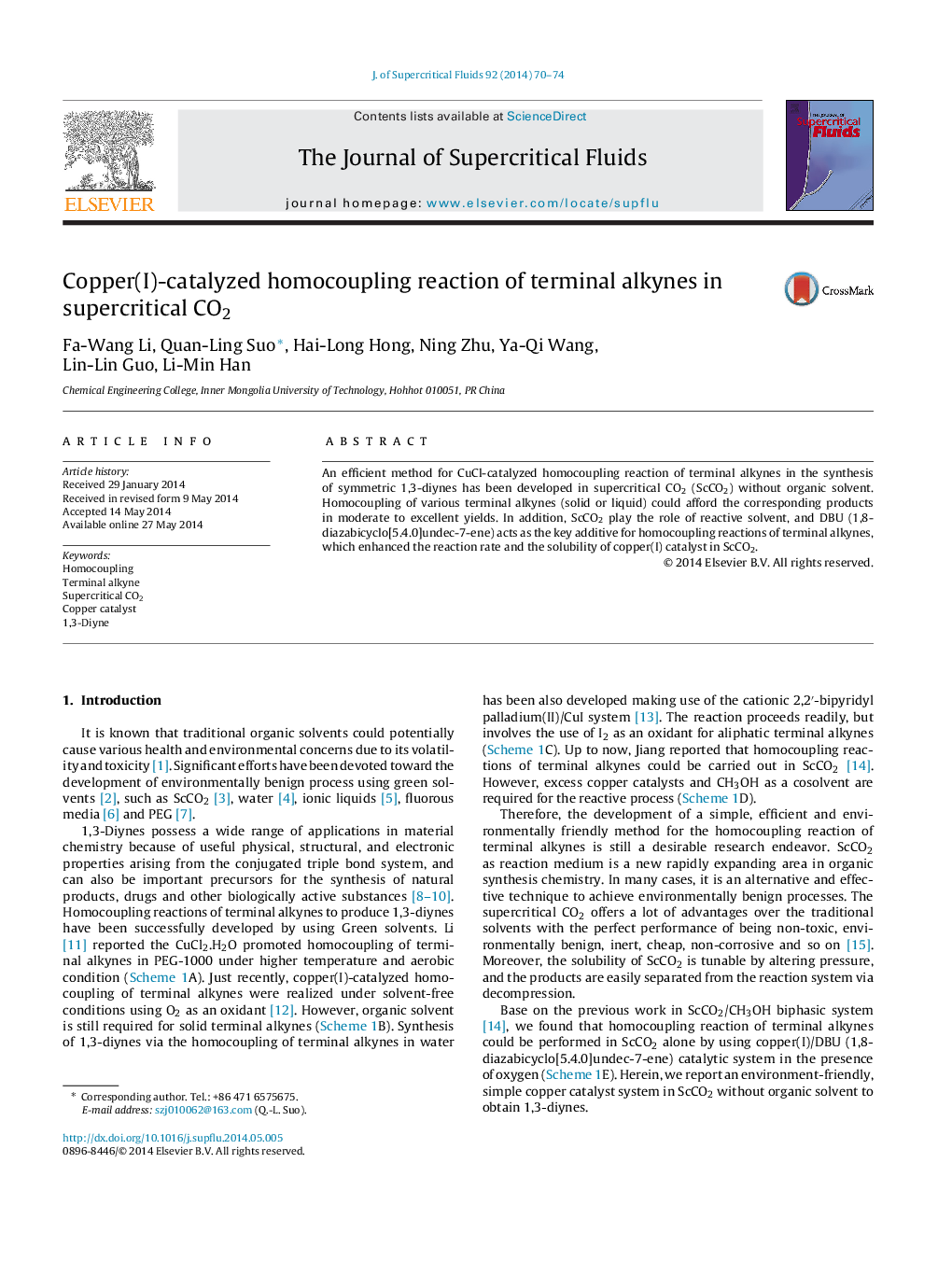| Article ID | Journal | Published Year | Pages | File Type |
|---|---|---|---|---|
| 230493 | The Journal of Supercritical Fluids | 2014 | 5 Pages |
•A catalytic amount of copper salt is required for the homocoupling reaction in ScCO2.•No organic solvent is used and ScCO2 acts as solvent in the reactive process.•DBU enhanced the reaction rate and the solubility of copper catalyst in ScCO2.•This approach is also suitable for homocoupling reaction of solid terminal alkynes.
An efficient method for CuCl-catalyzed homocoupling reaction of terminal alkynes in the synthesis of symmetric 1,3-diynes has been developed in supercritical CO2 (ScCO2) without organic solvent. Homocoupling of various terminal alkynes (solid or liquid) could afford the corresponding products in moderate to excellent yields. In addition, ScCO2 play the role of reactive solvent, and DBU (1,8-diazabicyclo[5.4.0]undec-7-ene) acts as the key additive for homocoupling reactions of terminal alkynes, which enhanced the reaction rate and the solubility of copper(I) catalyst in ScCO2.
Graphical abstractFigure optionsDownload full-size imageDownload as PowerPoint slide
